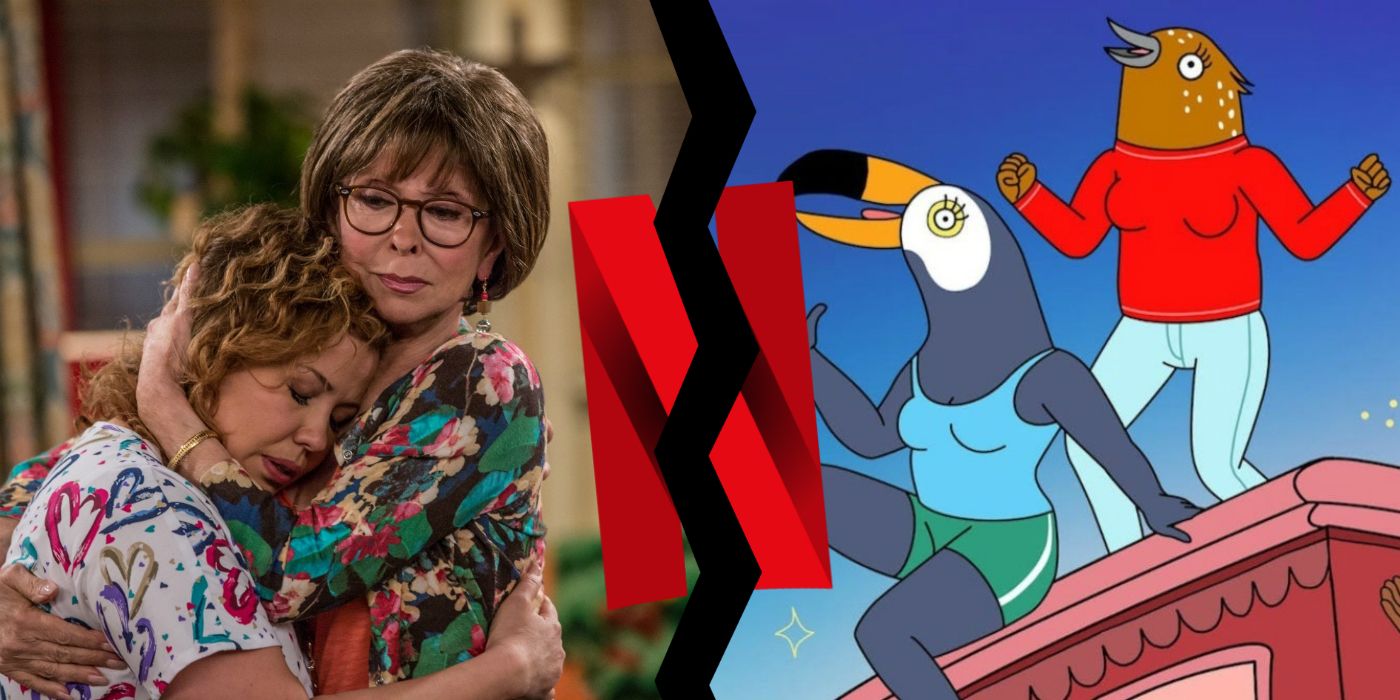Saving TV shows helped Netflix make its name and gain popularity, but it's since become part of the problem by cancelling so many series. Netflix began creating original content in 2013, with House of Cards released in February of that year. It wasn't just original shows, however, that helped to cement Netflix's reputation. Three months later, on May 26, 2013, the streaming service would drop a 4th season of the cult comedy Arrested Development. The award-winning series had been a critics' darling on Fox but its perpetually low ratings led it to be cancelled. Netflix picking the show up was seen as a power move, proof that they could do what the traditional networks couldn't or wouldn't. Seven years later, things have changed drastically.
Over the years since that original programming launch, Netflix garnered a reputation for being a home for shows that never got their due on network TV. They picked up The Last Kingdom and made it a hit, and brought the British comedy Lovesick to a worldwide audience after Channel 4 dropped it. Fox's paranormal procedural Lucifer got a second chance at life, as did Lifetime's You, with the latter becoming a minor phenomenon thanks to the streaming service. It’s a great marketing tactic to TV lovers – Netflix will give underappreciated shows the attention they deserve. Unfortunately, it’s a concept they haven’t been applying to their own original series lately.
It was recently announced that Cartoon Network would be picking up Netflix’s animated comedy Tuca and Bertie for a second season after the streaming service unceremoniously cancelled it shortly after its first season dropped to wide acclaim. This came a year on from Pop, the network behind Schitt’s Creek, picking up another Netflix comedy, One Day At a Time, after its premature cancellation. Netflix has been criticized for the way it quickly ends shows mere weeks after their debut. Their much-vaunted algorithm and highly secretive viewership numbers are used to justify these choices but that only makes the process all the more aggravating.
Netflix has always sold itself on its sheer quantity of content. Literally dozens of new things to watch – from original movies, TV shows, and documentaries, to stand-up specials, and familiar titles – are added every month. As such, keeping on top of it all is nigh-on impossible. A lot of things slip through the cracks and never get their chance to shine. Tuca and Bertie, for instance, received a lot of critical acclaim, but fans complained that Netflix was doing little to push the show when it dropped. One Day at a Time became known as a hidden gem because the service never seemed especially interested in giving it the attention they gave other series like Stranger Things.
As Netflix becomes bigger and ever more saturated with content, the platform seems to have less patience for allowing series to naturally find their audience. The benefit of Netflix is that these shows are always available, so word-of-mouth can spread organically and you can potentially discover your next favorite show months after everyone is done talking about it. That seems to have been the case for Tuca and Bertie, a smaller and more niche comedy that viewers stumbled upon after Netflix had already pulled the plug. By then, however, it was too late. Those viewing figures didn’t seem to matter to Netflix.
This puts an enormous amount of pressure on the fans of a show to get the word out days after a new season drops. When One Day at a Time season 3 released, the showrunners let people know that cancellation was a real risk, so people rushed to rewatch the series or just have it on in the background to get its numbers up. Not everyone has time to drop everything and watch dozens of episodes of a series just to save it. Netflix thrives on the binge-watch and implicitly encourages its subscribers to let episodes build up for those marathon viewings. It’s a big selling point but one that feels at odds with their willingness to cancel a show less than a month after it drops.
Network television may have its issues but at least it gives shows some room to breathe and find their audience. It’s ironic that the old ways have now come to bite Netflix hard, but as long as they are beholden to their near-mythic algorithm, these curiosities will continue. It’s a shame that Netflix has now evolved into the beast it once saved those under-appreciated shows from, but perhaps that is an inevitable side-effect of its staggering growth.


